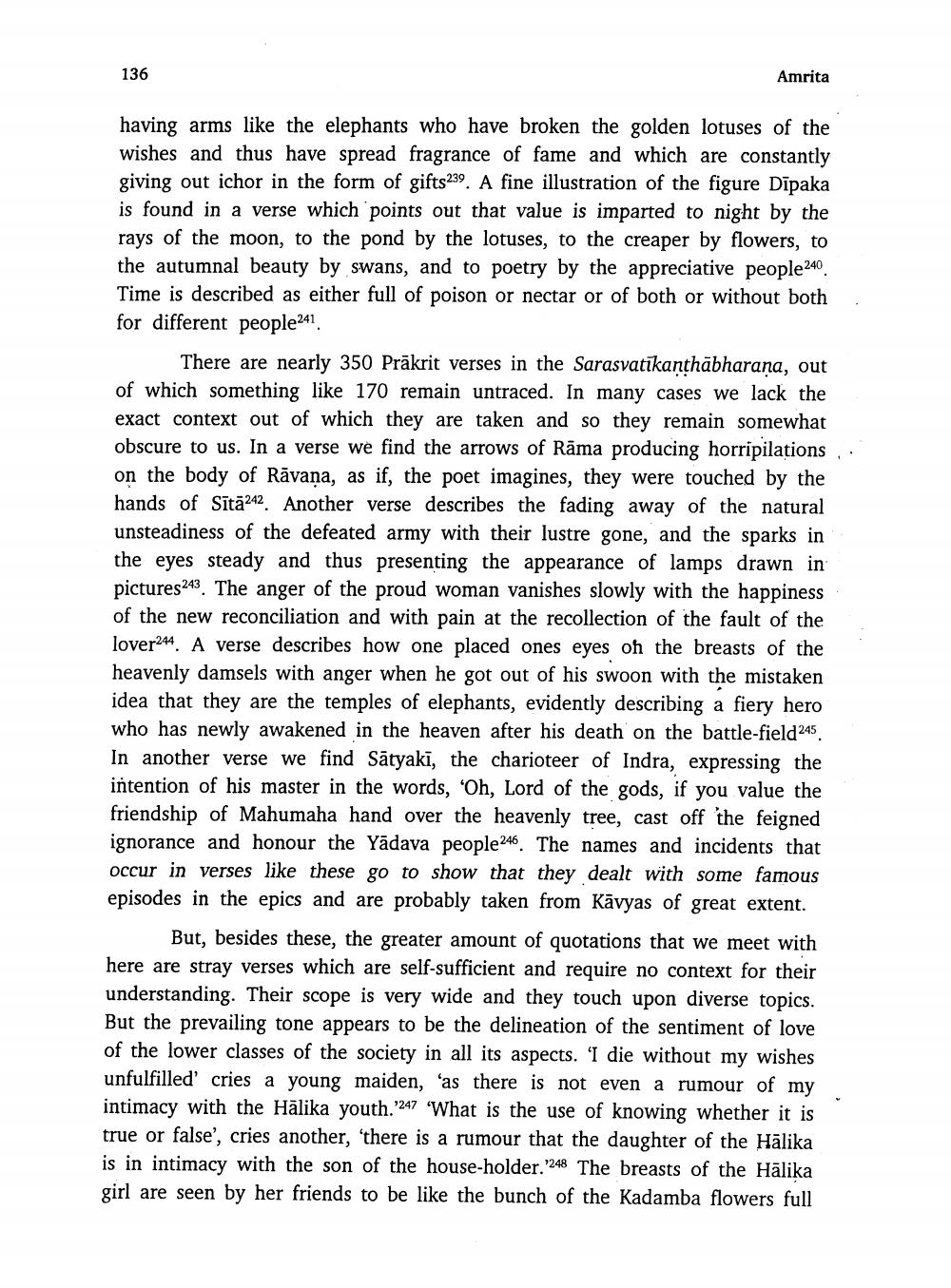________________
136
Amrita
having arms like the elephants who have broken the golden lotuses of the wishes and thus have spread fragrance of fame and which are constantly giving out ichor in the form of gifts239 A fine illustration of the figure Dīpaka is found in a verse which points out that value is imparted to night by the rays of the moon, to the pond by the lotuses, to the creaper by flowers, to the autumnal beauty by swans, and to poetry by the appreciative people240. Time is described as either full of poison or nectar or of both or without both for different people241
There are nearly 350 Prākrit verses in the Sarasvatīkanthābharana, out of which something like 170 remain untraced. In many cases we lack the exact context out of which they are taken and so they remain somewhat obscure to us. In a verse we find the arrows of Rāma producing horripilations, on the body of Rāvana, as if, the poet imagines, they were touched by the hands of Sītā242. Another verse describes the fading away of the natural unsteadiness of the defeated army with their lustre gone, and the sparks in the eyes steady and thus presenting the appearance of lamps drawn in pictures243. The anger of the proud woman vanishes slowly with the happiness of the new reconciliation and with pain at the recollection of the fault of the lover244. A verse describes how one placed ones eyes oh the breasts of the heavenly damsels with anger when he got out of his swoon with the mistaken idea that they are the temples of elephants, evidently describing a fiery hero who has newly awakened in the heaven after his death on the battle-field 245 In another verse we find Sātyakī, the charioteer of Indra, expressing the intention of his master in the words, 'Oh, Lord of the gods, if you value the friendship of Mahumaha hand over the heavenly tree, cast off the feigned ignorance and honour the Yādava people246. The names and incidents that occur in verses like these go to show that they dealt with some famous episodes in the epics and are probably taken from Kāvyas of great extent.
But, besides these, the greater amount of quotations that we meet with here are stray verses which are self-sufficient and require no context for their understanding. Their scope is very wide and they touch upon diverse topics. But the prevailing tone appears to be the delineation of the sentiment of love of the lower classes of the society in all its aspects. 'I die without my wishes unfulfilled' cries a young maiden, 'as there is not even a rumour of my intimacy with the Hālika youth.247 'What is the use of knowing whether it is true or false', cries another, there is a rumour that the daughter of the Hālika is in intimacy with the son of the house-holder.'248 The breasts of the Hālika girl are seen by her friends to be like the bunch of the Kadamba flowers full




